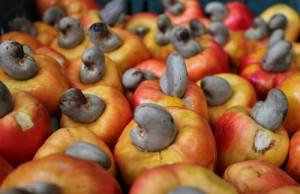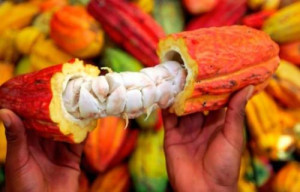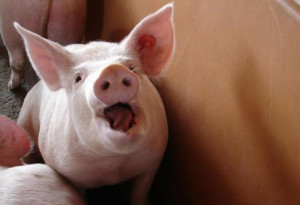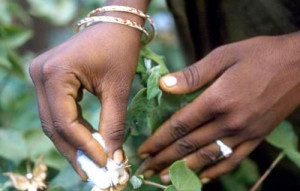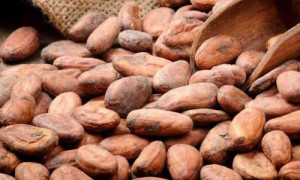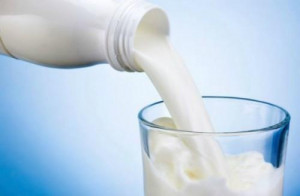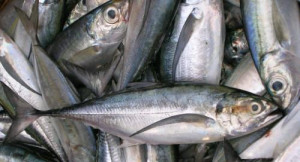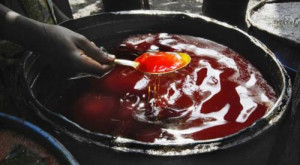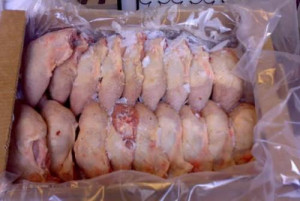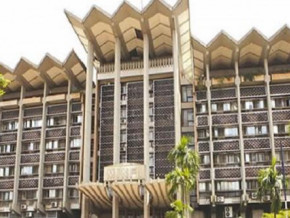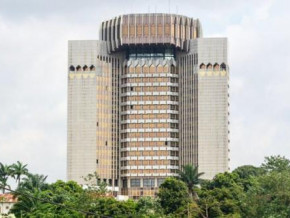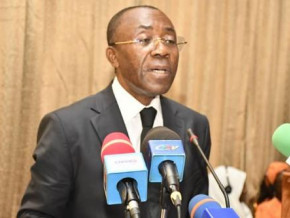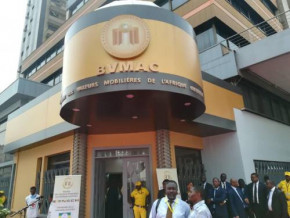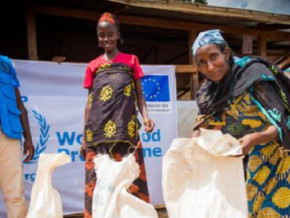
Cameroon sets a 2019-23 national strategy to develop cashew value chain
Last October 17, the Cameroonian government adopted a document on the national strategy for the development of cashew value chain covering the 2019-23 period, in the capital Yaoundé.
The document, set with support from the German organization GIZ, dropped an exhaustive overview of this still embryonic sector. It also explores all components (land availability, institutional arrangements for promoting cashew cultivation, plant problems, stakeholders, processing incentives, financing, etc.) aimed at making cashew an equally important cash crop in Cameroon as cocoa, coffee or cotton.
According to the head of German cooperation in Cameroon, the implementation of this strategy will not only enable the Cameroonian government to create thousands of jobs in rural areas, increase tax revenues and incomes for rural populations, but also to achieve its objective of restoring 12 million hectares of deforested forest by 2030.
The validation of this strategy comes at a time when the Agricultural Research Institute for Development (IRAD) is deploying a program to produce 10 million cashew plants by 2021, equivalent to about 100,000 hectares of plantations in the country.
Brice R. Mbodiam
Cameroon launches registration for cocoa quality premium selection for the 2017-2018 season
Cameroonian cocoa producers have the period from October 16 to November 16 this year to register with the relevant departmental delegations of the trade ministry in order to qualify for the cocoa quality premium for the 2017-2018 season.
According to a statement from the trade ministry, applicants for this premium valued at CFA1 billion will have to, in addition to elements allowing them to be identified as producers, present a “document attesting to the marketing of a grade 1 or good fermented cocoa”, sources said.
As a reminder, the cocoa quality premium was introduced in Cameroon during the past season to encourage local producers to produce quality beans. Indeed, for more than ten years, the country has exported over 90% of grade 2 beans. But, thanks to this new strategy “ the volumes exported in grade I increased from 1,099 to 8,933 tons between the 2016-2017 and 2017-2018 marketing years, reflecting an increase by 713%,” revealed Trade Minister Luc Magloire Mbarga Atangana on August 8 in Yaoundé, at the opening of the 6th edition of the Cameroon International Cocoa Festival (Festicacao).
BRM
Cameroon to pump over CFA10bn in the husbandry sector, in Northern areas
Under the Livestock Development Project (Prodel), the Cameroonian government is to inject CFA10.4 billion into 26 communes in the three Northern regions, we learnt October 12. The World Bank also backed the scheme with CFA60 billion.
While 8 communes have been selected in the North and Adamaoua, 10 were chosen in the Far-North where the breeding sector has seriously been affected by attacks from the Nigerian Islamist sect Boko Haram.
According to statistics from the World Bank, the sect has stolen since 2013 CFA3 billion worth of cattle in the Far-North. The ministry of husbandry revealed that the sector is the most affected by the exactions, suffering 65% (CFA54.8 billion) of overall losses.
Prodel is seen as a new breath that is expected to boost the sector, mainly in the focus regions. It targets about 120,000 breeder families, shepherds, livestock organizations, about 20,000 economic operators and private SMEs, public and private livestock support services, services providers in livestock value chains (cattle-milk, cattle-meat, small ruminants, pigs, poultry and honey) in the project's intervention areas.
Officials of the ministry of husbandry said actions will focus on improving producers' access to key livestock services (animal health services, genetic material, etc.); improving the productivity of pastoral production systems, market access and support for the development of value chains.
Brice R. Mbodiam
Cameroon: Sodecoton to issue final results of GMO cotton trials before 2018 ends
Started since 2012 in an enclosed environment and in an open environment in 2015, the trials of GMO cotton cultivation will soon come to an end. Indeed, the national cotton development company (Sodecoton) which is in charge of the project, will give the final results before the year ends, sources said.
Once the trials end, the transgenic cotton would be used across the country. For the record, back in 2015, Sodecoton launched a series of public consultations in the Far North region in order to seek producers’ views on the opportunity to introduce GMOs into cotton cultivation.
For 2018, Sodecoton eyes a production of 260,000 tons of cotton and plans to increase this quantity tenfold in the coming years through the introduction of GMOs. Cameroonian experts said, under this move, GMOs could quickly be introduced in the cultivation of highly prized cereals such as rice, maize or sorghum.
Brice R. Mbodiam
Cameroon: Sabc rewards employees in Western region
Brasseries du Cameroon (Sabc), local subsidiary of Castel, recently organized a medal ceremony for employees in the Western region. During the event, CEO Emmanuel de Tailly (photo) explained how the company’s industrial base is structured.
According to him, Sabc is in partnership with 6,000 local farmers who provide 30,000 tons of sugar and 10,000 tons of corn annually. As well, the brewer sources from 2,900 local subcontractors for an annual purchase of CFA6 billion.
Mr. Emmanuel said with 15% of Cameroonian ownership, Sabc is the largest agri-business industrial complex in Cameroon and most probably in Central Africa.
With 6,500 direct jobs, 9 factories and 42 distribution centers supplemented by 1,000 vehicles carrying 3 million bottles a day (equivalent to traveling around the earth 600 times a year) and currently 100,000 indirect jobs, the company reported a current turnover of CFA650 billion.
S.A
Cocoa farm-gate price once again exceeds CFA1,000 per kg
Last October 8, the national cocoa and coffee council (Oncc) reported that the farm-gate price per kg of cocoa once again exceeds CFA1,000 after having dropped since the last week of September.
Prices were CFA970 for the highest and CFA940 for the lowest till the announcement day. With these prices, Cameroonian cocoa growers are one of the most paid in Africa, ahead of their Ghanaian and Ivorian peers who receive CFA850 and CFA750 respectively.
BRM
Cameroon: Despite a steady growth, milk production showed a deficit of 120,000 tons in 2011-16
Over the period from 2011 to 2016, milk production grew by nearly 70,000 tons, from 109,000 tons to 172,000 tons, Dr. Taïga the minister of livestock, fisheries and animal industries (Minepia) said in an interview with Défis actuels.
Despite this increase, which is the result of government programs to promote livestock and milk production, the production is still short of just over 120,000 tons, since the annual domestic demand stood at about 297,000 tons, sources revealed.
Experts said the deficit is due, among others, to the poor producing cow species used by breeders, the lack of modern production facilities, the isolation of main production areas, etc.
In need to reduce the gap, economic operators spent CFA31 billion in milk import in 2015, sources said. Moreover, in order to avoid the high costs of imports that are driving up production costs, some local producers are exploring new solutions. For instance, Camlait disbursed CFA3 billion to set a soy-based yoghurt production unit. CEO Paulin Toukam Zuko said the production costs of this sort of yogurt are 50% lower than those made from milk. As a result, the Cameroonian agri-business now intends to generate 65% of turnover in the mid-term thanks to locally produced soy-based yogurt.
Brice R. Mbodiam
Cameroon: Fish production grew by 80,000 tons between 2011 and 2016
Between 2011 and 2016, fish production in Cameroon increased by 80,000 tons from 205,000 tons to 285,000 tons, Dr. Taiga the Minister of Livestock, Fisheries and Animal Industries (Minepia) announced.
This improvement, thanks to the development of aquaculture, is however slowed by the influence of foreign fishermen in this sector, who often export a large part of production, after sometimes illegal fishing on the Cameroonian coast. Due to this situation, Cameroon remains a net importer of fish products, especially fish, despite its potential.
Let’s note that local operators spend about CFA100 billion in fish import every year.
BRM
Cameroon to import 100,000 tons of crude palm oil from Gabon and Indonesia in 2018
As to ensure a sufficient supply to vegetable oil refiners, Cameroon will import from Gabon and Indonesia 100,000 tons of crude palm oil and derivatives in 2018. The information was given by Emmanuel Koulou Ada, head of the Oilseed Sector Regulatory Committee following a session held in Yaoundé October 2.
Singaporean group Olam will ensure the import of the volume from Gabon while that from Indonesia will be ensured by “Indonesian traders”. Each country will provide 50,000 tons, Mr. Koulou said.
As a reminder, after having long peaked at 100,000 tons per year, Cameroon's annual structural shortfall in crude palm oil now officially stands at 130,000 tons. This is caused by higher investment by refiners, while local production has been stagnating for years.
BRM
Cameroonian customs seize 500 kg of frozen chicken cuts in Yaoundé
Last September 28, the Cameroonian customs seized a cargo of 500 kg of frozen chicken pieces in Yaoundé, we learnt. Products were to be sold on the local market.
Indeed, import of frozen chicken has been banned in the country since 2006 to boost the national poultry sector affected by massive imports. However, the product is still available over the counter in some fish shops, in the capital. Sources said economic operators are taking advantage of the porous borders between Cameroon and neighboring Nigeria, Gabon, Chad and Equatorial Guinea to import frozen chicken which are sold at cheaper prices than live chicken.
BRM
Mags frontpage
- Most read 7 days
- shared 1 month
- read 1 month


